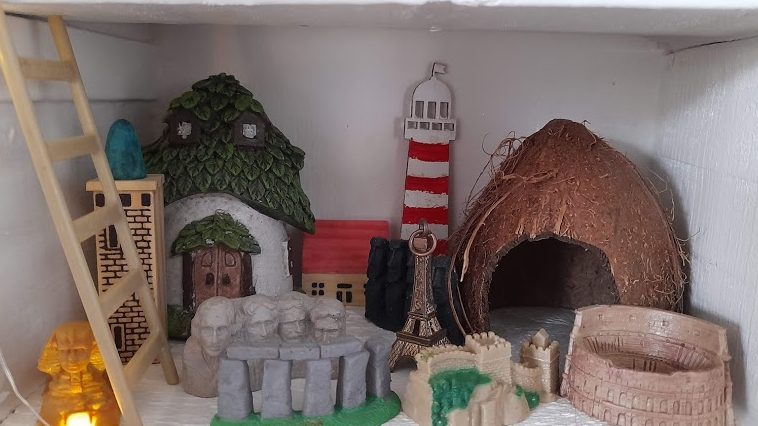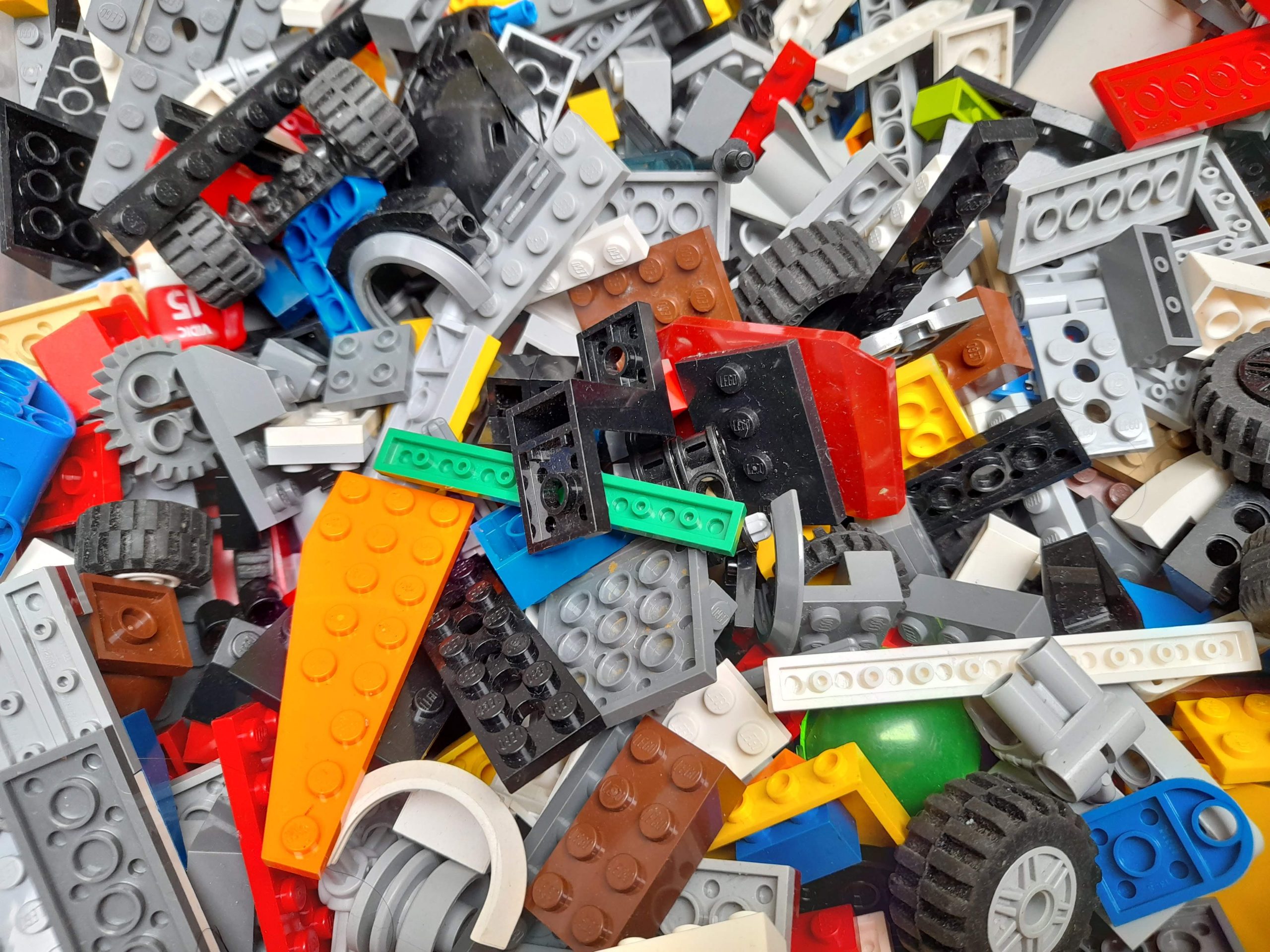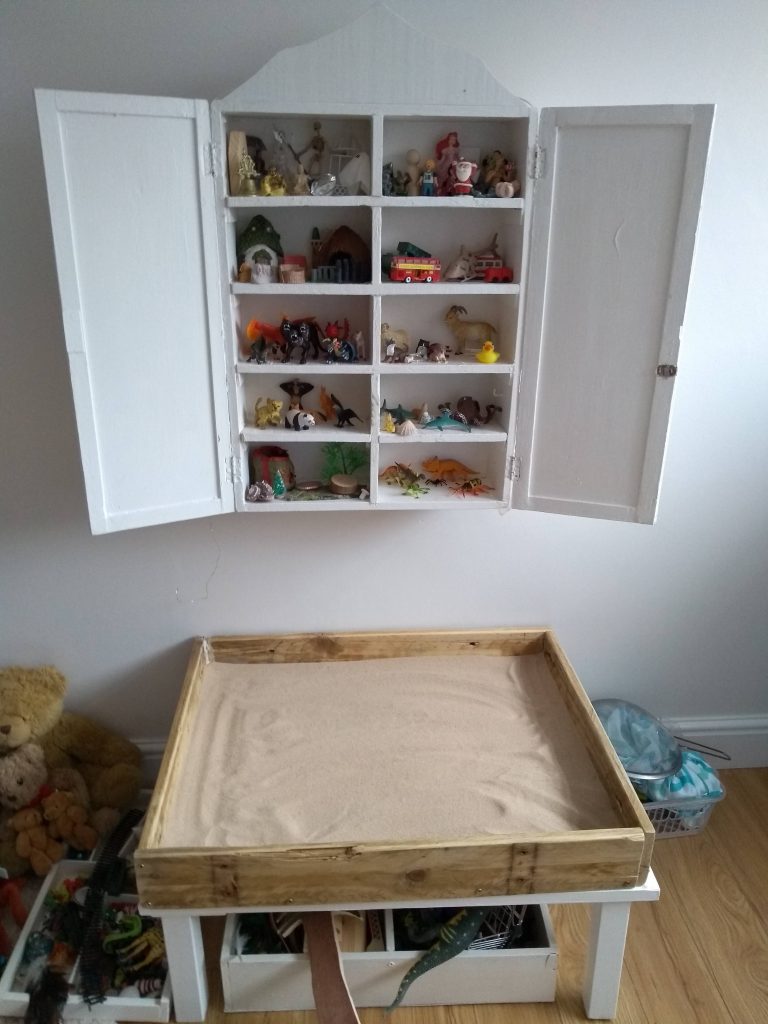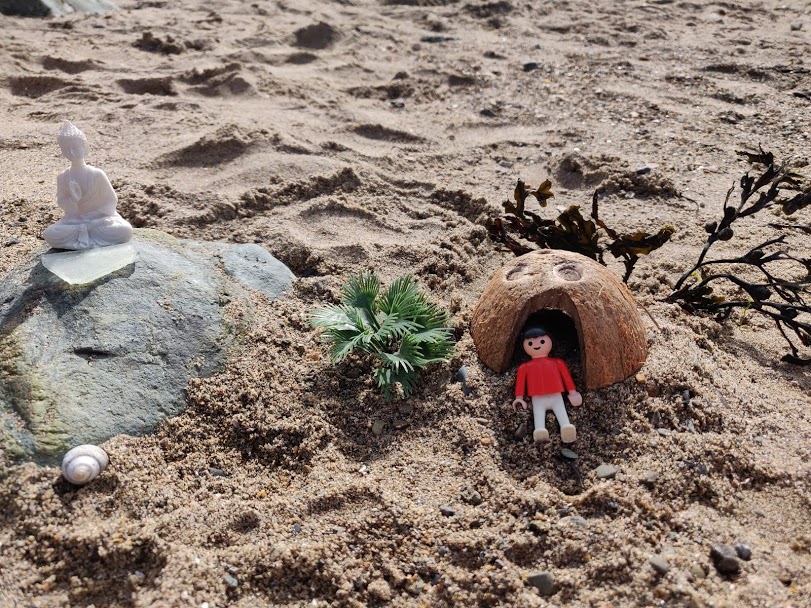“In the play therapy experience, toys are like the child’s words, and play is the child’s language.” (Landreth: 2012)
Therapeutic play has been developed to help children and young people who experience a range of difficulties. Children have access to: Art, clay, puppets, sand play with miniatures, construction toys, drama, role play and dressing up, games, books, storytelling, movement and music. This helps them to work through their concerns in a safe space within a therapeutic relationship.
Play is a child’s natural language. Children develop emotionally and in a vast range of other skills during periods of free play. Researchers are rapidly learning the complexity of brain activity during play (for more on play listen to my forthcoming podcast). Because children find it hard to express in words what concerns them, play can be a useful way for them to share what concerns them through symbols.
Using the resources in the room children can represent their feelings and experiences and communicate to the therapist how it feels to be in their world. Because children’s brains are more adaptable or ‘plastic’, it is more effective to work with issues with children than to wait until they are adults.
Up to 88% of children will show a positive change when working with a registered play therapist (Thomas, 2011)
The Play Room and Therapist

The therapeutic environment needs to feel safe for the child. This helps me as the play therapist to help the child regulate their emotions so they can make sense of their experiences.
Sometimes the child leads and I follow. At other times, I lead activities that I feel might be beneficial for them. Some of the focus in the playroom will be on more tangible skills such as taking turns and dealing with frustration. Other moments might be deeply moving or joyful. Regardless of the method of working, I will always aim to build a relationship with the child rather than the ‘problem’.
Children’s Challenges

According to Thomas (An Effective Way of Alleviating Children’s Emotional, Behaviour and Mental Health Problems – the Latest Research. Uckfield: PTUK: 2011), 70%-88% of children will show a positive change when working with a registered play therapist depending on the severity of the problems.
The list of difficulties that play therapy can support is very broad and includes:
- General stress and anxiety, self-esteem and emotional well-being
- Behavioural difficulties
- Attachment issues
- Low confidence / self-esteem
- Frustration and anger issues
- Fears and phobias
- School issues (transitions to new classes / schools, exam anxiety)
- Bullying
- Separation, divorce, blended families or other family conflict
- Hospital stays and medical treatment
- Food anxiety and disorder
- Trauma, neglect, emotional, physical or sexual abuse or PTSD
- Additional behavioural needs including
- Experiencing loss or bereavement
- Sleep issues and toileting issues
Additionally, play therapy can help to improve a child’s concentration, anger management, group-work, communication as well as school attendance. Research has also shown that early emotional regulation has been shown to support good immune function (Gerhardt, Why Love Matters: How affection shapes a baby’s brain: 2004).
Furthermore, changes in wellbeing have also been shown to contribute to higher levels of academic achievement according to the ‘Child of the ’90s’ research done here in Bristol (Morrison Gutman and Vorhaus, the Avon Longitudinal Study of Parents and Children: 2012).
Additionally, improvements in the well-being of a child can have beneficial ripple effects on heir parents, siblings, teachers, friends as well as extended family, their community and society more generally.
My Approach to Play Therapy
As a play therapist I subscribe to a set of commitments. These include accepting the child as they are and allowing a sense of unhurried time. There is a level of permission in the playroom which allows the child to express themselves. Thus, though always safe, boundaries in the playroom might look a little different from those at home / school.

I acknowledge and reflect the child’s feelings while respecting the idea that the child has the ability to solve their problems. The child always has the choice to play or not play and the sessions are uninterrupted. The sessions are run in a consistent manner and are confidential so the child is free to share or not share what happened in the session.
The aim is for the child to increase their self-awareness over time and to work on unresolved issues. They can then develop more confidence and self-esteem which will contribute to their ability to form relationships, their creativity, resilience and growth.
What Does Play Therapy Involve?
This is how the process normally unfolds:
- If you are concerned about a child as a parent, family member or professional, please do get in touch using the contact form and we can discuss your child’s needs.
- If we agree to work together we will then have an initial consultation to find out more about your child (see fees below). We will agree an initial number of sessions (normally 12 weekly sessions) through a contract.
- The child comes for their first session with their main carer. Thereafter they may come on their own or with the carer, depending on whether the work is on the relationship with the parent or the child would benefit from time on their own in therapy. Sometimes a combination will be used.
- After 6 weeks we will have a review and we will consider whether the child will need more sessions. More difficult entrenched issues tend to take longer due their complexity.
- When we feel the child is ready to finish sessions, we will aim to give the child three week’s notice so we can work towards an ending which are very important in therapy.
- When the child and I have finished meeting for sessions, we will review the work, look at the strengths and difficulties questionnaire and look at next steps for the child.
- If you need to contact me about your child during the therapy period please email me and I will try to respond as soon as possible if it brief. If it involves a longer discussion we will need to book a parent session which can be held on the phone or over video calling.
Once sessions begin they will be at the same time in the same place every week. This consistency helps build the therapeutic relationship between myself and the child. It helps to minimise missed sessions as this may disrupt the child’s therapeutic process. Arrangements for holidays and illness will be covered in the initial meeting.
The room is very adaptable and can facilitate calm and peaceful play. However, there are also many ways a child can safely work through the need to be aggressive, for example. If your child has an particular requirements, please let me know.
Groupwork, Woodwork and Play Therapy Outdoors
Where several children share the same challenges (such as friendship issues or difficulties with school transitions) or the same therapeutic objective (such as increased self-esteem or reduced aggression) it may be appropriate and more cost effective to provide Group Play Therapy. This might be more directive as I will plan a series of activities. Please contact me to find out more.
Additionally, I am developing play therapy in the outdoors and therapeutic woodwork. Please do ask for details.
Putting Children’s Safety First
To ensure safe and professional practice I take the following actions:
- I attend monthly clinical supervision
- I hold an enhanced DBS Certificate (police check)
- I hold up-to-date child safeguarding training
- I undertake continuing professional development such as secondary trauma and attachment training
- I undertake regular reviews of my own personal and professional well-being as well as attending therapy myself
- I hold Professional Liability Insurance
- I am a member of play therapy’s professional body PTUK
- I work within PTUK’s Ethical Framework
- I am registered with the Information Commissioner’s Office with regard to data protection
Fees
- Organisations – please contact me if you are looking for sessions in schools, charities or other organisations.
- Individuals sessions – Individual sessions are £55 I also run initial consultations with parent(s), as well as mid-way and end reviews which are charged at £50 per session which are essential to the process. These are really valuable because the child is part of a family system and helping you to support your child is really important. School visits before a child starts therapy can be useful and will be charged at a session and a half’s rate if they are in the central Bristol area. Please email me in the first instance to see about availability with a short summary of your concerns.
- Group sessions – please contact me for more details.
Cancellation Policy
We will diarise holidays at the beginning of the work. Unfortunately, unless otherwise agreed, missed sessions with less than 24-hour’s notice will be charged for. However, sessions missed by the therapist without notice will not be charged for.













